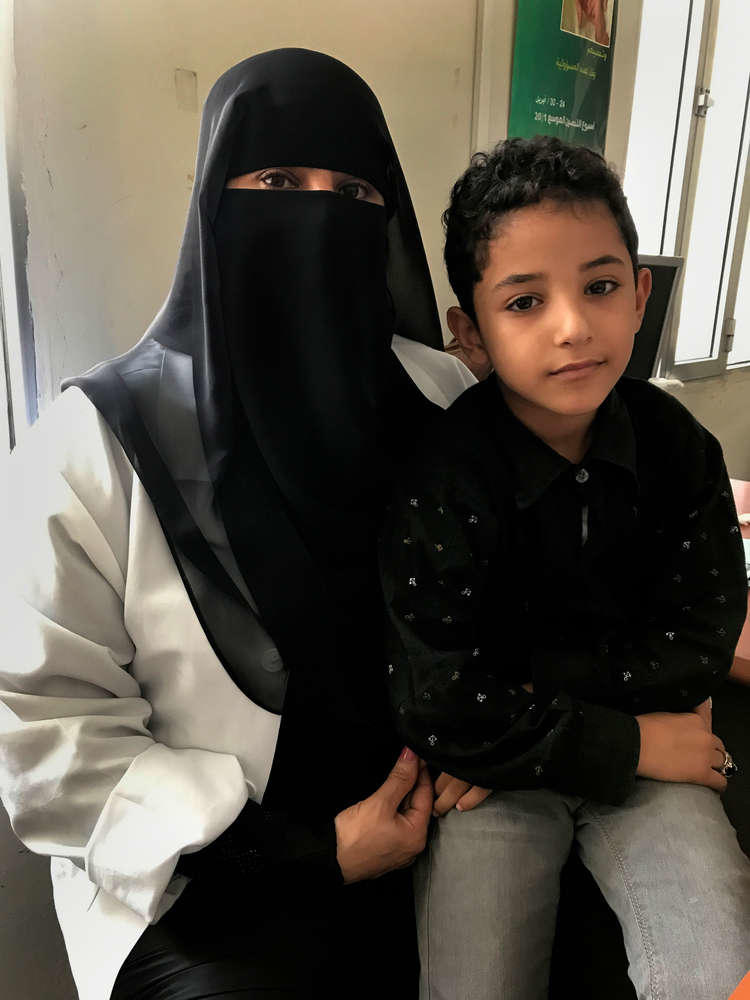Ibrahim Ahmad Al Babli, Lab Technician, HIV Clinic, Sana’a
My job involves taking blood samples from patients, registering the samples and following up with results. I chose this work because of the patients. Their cases are difficult and they need help. Not a lot of people agree to work here because of the stigma against people living with HIV. This clinic is the only project of its kind in the Middle East.
Most of my patients are poor. Sometimes they have AIDS and are bedridden. They arrive in the ER and nobody helps then. Sometimes I will go to ER to intervene on their behalf, to try and convince the doctors to treat them. I tell them:
¨Today he is your patient. Tomorrow he is your brother, your sister or your father.¨
I can´t remember the last time I received a salary. It must have been more than a year. I sent my own family back to the village because it is cheaper for them to live there. If they want to travel, we borrow money from a friend. Sometimes my family helps. It´s a lot for them to manage. I have four kids, aged 15, 14, 12 and 10. Then there are my patients. I cannot leave my patients. They are worse off than I am.
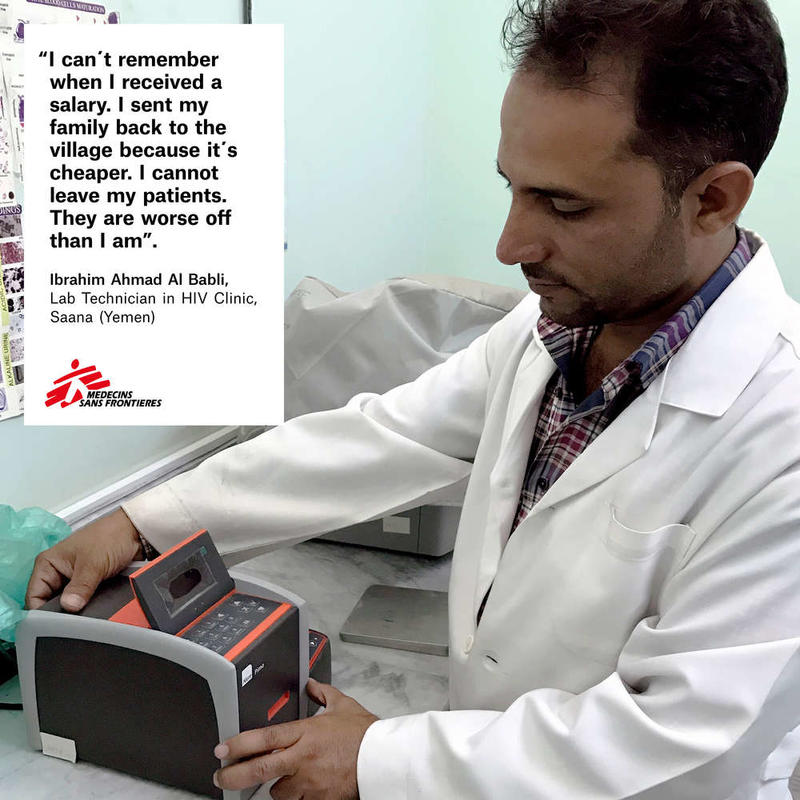
Fatma Ismail Ahmad Besher, Pharmacist, HIV Clinic, Sana’a
I have worked in this clinic for eight years. For the past fourteen months I have not received my salary. If I don´t come to work, this disease will spread through the country. There is no awareness about the disease. People think it is highly communicable. They think if they meet someone with AIDS they will catch it.
Doctors refuse to do operations. They don´t understand that these people are victims of the disease. They respond well to these medications and they improve. More than physically, they become psychologically well, more comfortable with themselves and with others. When patients come to pick up their medication, I try to explain to them that it is like insulin. If they take their medication on a daily basis, they can live normally. If they don´t their lives are shortened.
Without a salary, life is difficult. I have four children. Luckily I own my house. For my patients, the situation is worse. They have no food to eat. They come here for their antiretroviral drugs, but can´t afford medication to treat a simple headache. They can´t afford simple nutrition. Some of my patients travel for five hours to get here. If I wasn´t here, where would that leave them?
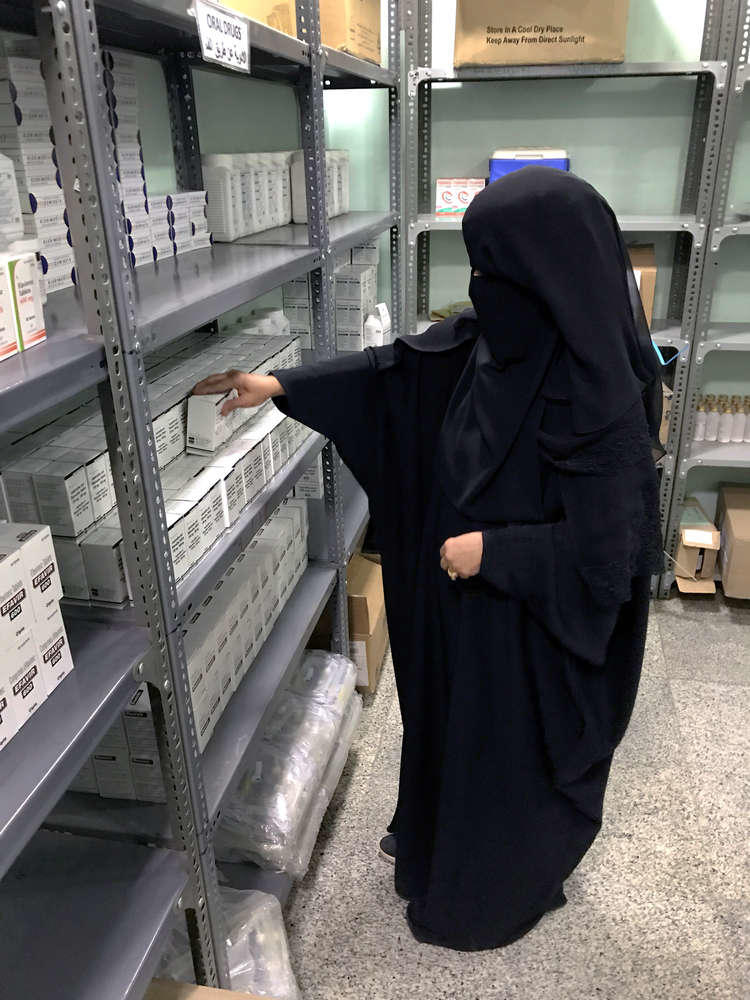
Anisa Saed Khalid, Counseling Nurse, HIV Clinic, Sana’a
My patients are completely different than other patients. They need to come here. They cannot receive counseling anywhere else because of the stigma. I have not received my salary for a long time, but in that same period of time, the needs of my patients have increased. Many of them endure things you cannot imagine.
One woman contracted HIV from her husband. After he died, her family would not take her back. Her uncle agreed to have her, but kept her locked in a room, giving her food on a tray that they slid through a window. Then the uncle came to see me. They learned more about the disease then brought their niece here. I did intensive counseling with all of them. Eventually the woman was accepted in the house. Her health improved. Eventually she married a man who was also HIV positive. They had a baby girl, who is one year old. In six months she will be tested to see whether she contracted HIV.
The work I do is humanitarian work. I do it for the patients. But when I am not paid it has an impact on my family. I used to give my mother money to help and support her. Now I cannot. My salary is essential for me to support my two children. Now, I borrow from my brother. It is becoming increasingly difficult to ask.
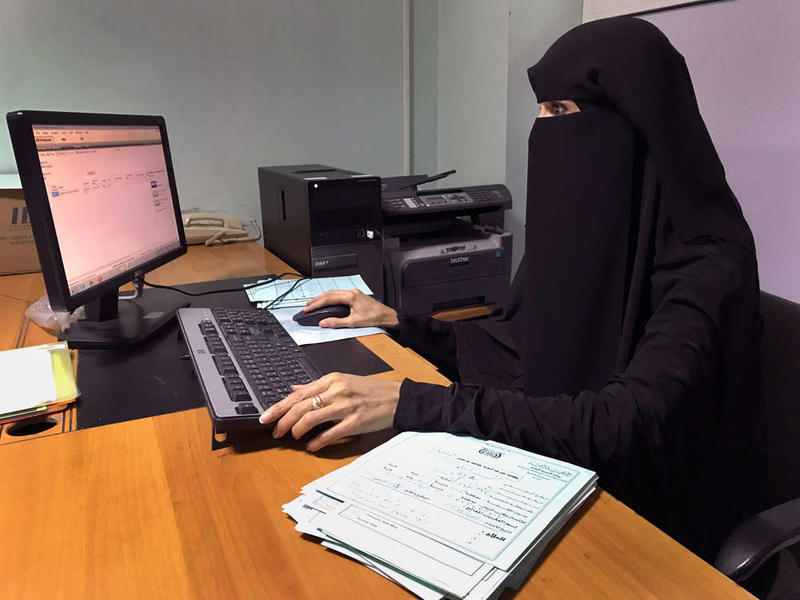
Hannan, Lab Technician, Rural Hospital in Abs
I have worked at the Ministry of Health for five years. For the past year, I haven´t received a salary. I need money for the same things most people do: for transportation, food and to live. Most of my colleagues have left. When people don´t get paid, they don´t come to work. They have found work in private clinics and the impact has been huge. I receive a small incentive from MSF which allows me to continue to work here. This is important work. My work saves lives.
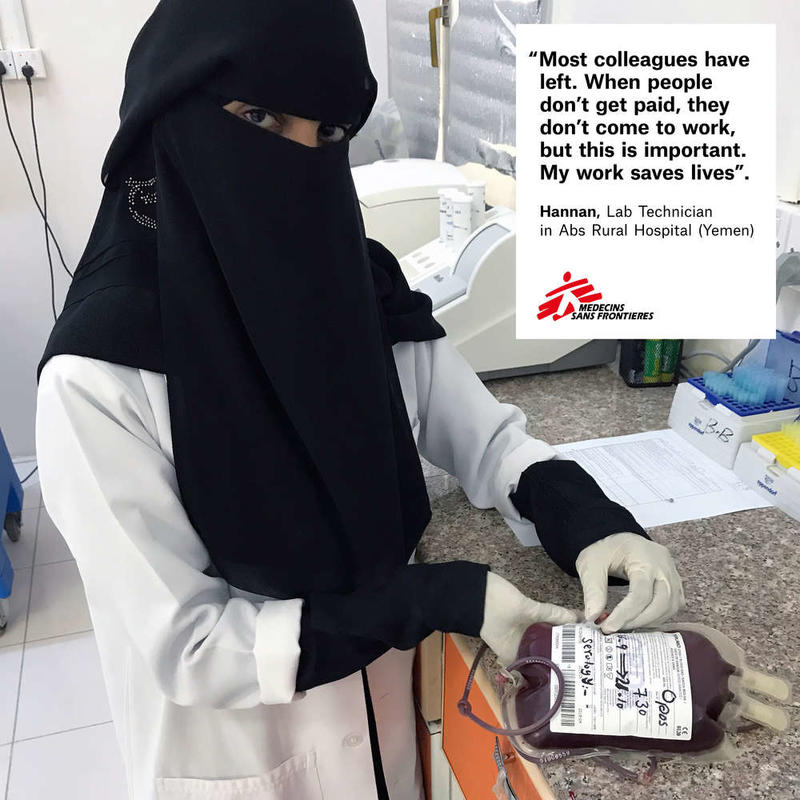
Mohammad Ahmed, Doctor, Rural Hospital in Abs
I have worked in the outpatient department for nearly five years. Almost all of the cases I see are emergencies. I also see cases of malnutrition, diarrhea, chest infection, scabies, urinary tract infections, tonsillitis, arthritis, gastrointestinal ailments. It´s a long list, but we are the only hospital left in the area, so everybody comes here.
I haven´t received my full salary for a year. Just before Ramadan, I received half a salary, and again before Eid. At least that was something. I live here in Abs. I know my patients and they know me. There is a pressing need for healthcare. The patients are in an even more difficult situation than I am. They cannot afford a private hospital. If I wasn´t here for them, who would they have?
To make ends meet I work in my private clinic in the afternoons. I have three children, aged 12, 9, and 4 years old to support. The public health system in Yemen is totally destroyed. Even if we are suffering we try our best to alleviate the suffering of others.
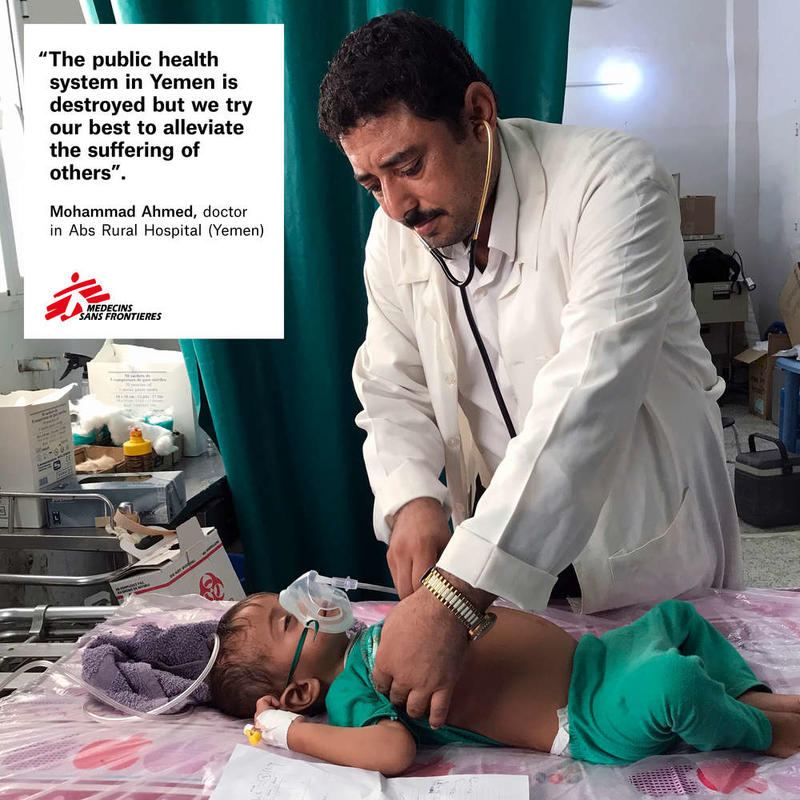
Haifa, Nurse, Hospital, Hajjah
I work in the outpatient department here in Hajjah. I help treat patients with abdominal pain, perform X-rays, and help pregnant women. I have worked here for eight years and my husband works at the Ministry of Health office in Hajja. For us, it is difficult to manage. We have a six year old son and we haven´t been able to pay his school fees. We are also behind on rent. Sitting at home will accomplish nothing. At least when I come to work I am helping my people through difficult times.
